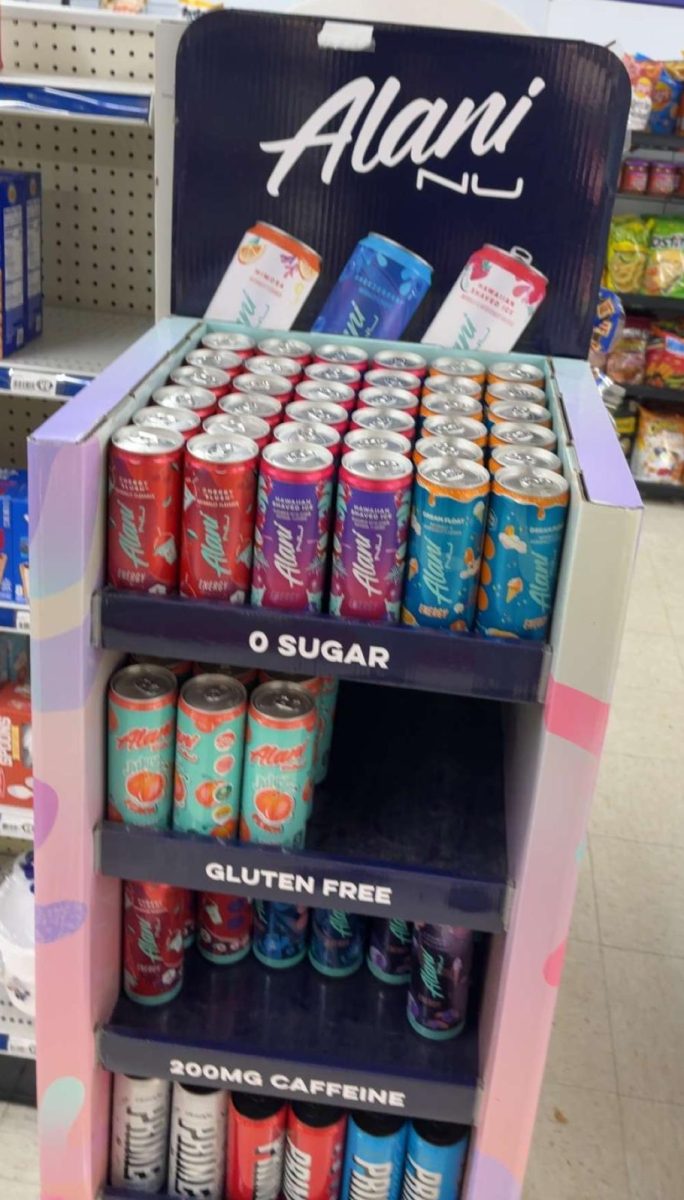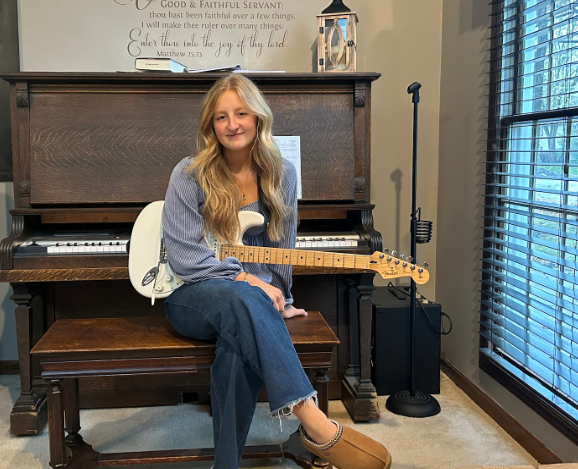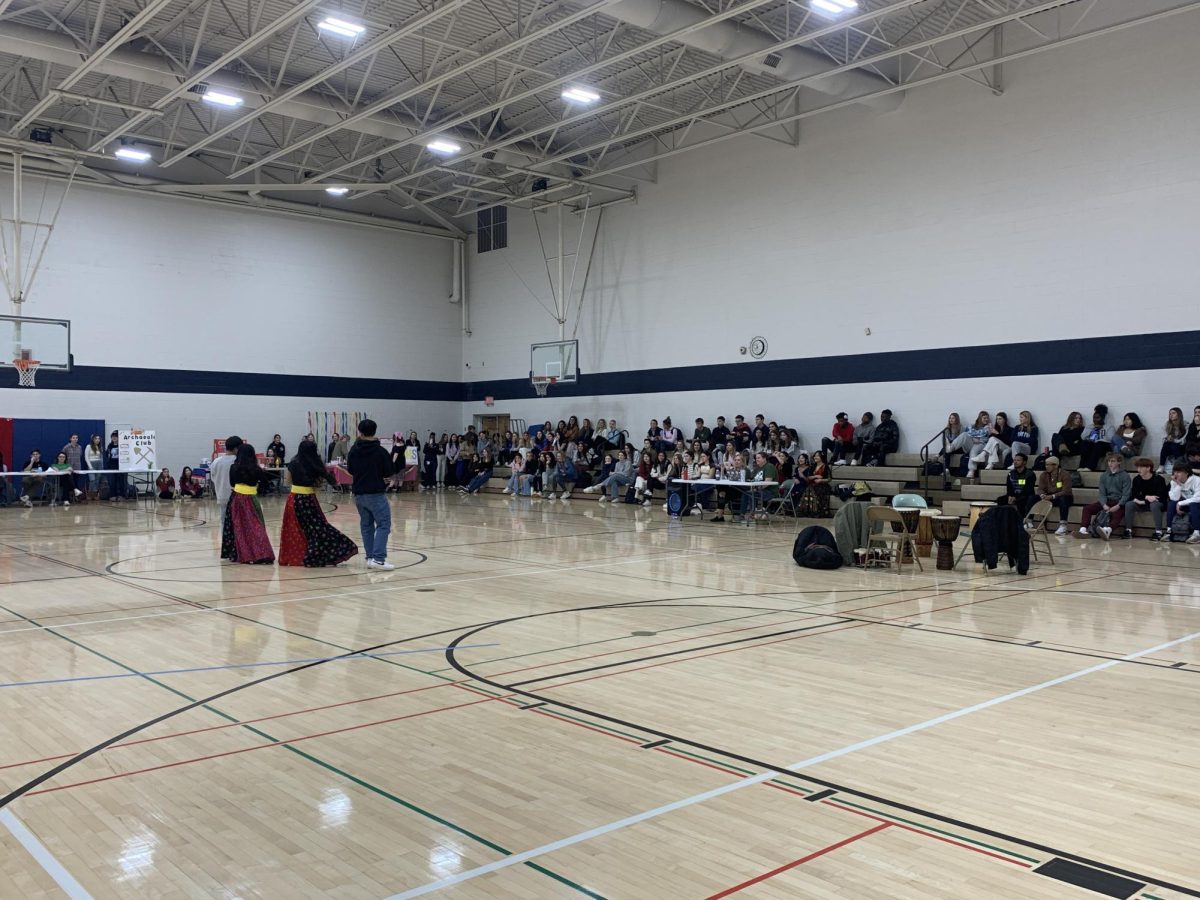In the iconic movie The Breakfast Club, five students with varying identities are sentenced to a Saturday detention. Each character represents a different stereotype: the princess, the athlete, the brain, the criminal and the basket case. Defying all odds, the mismatched group band together and realize that they’re all struggling and aren’t that different from each other.
The Breakfast Club’s message that teenagers are more similar than we realize is true, but not everything in the film is accurate. In the movie, the characters strictly have interests that match their stereotype. For example, other than their family life, Andrew Clark (the “athlete”) never shows any interest in any activities other than sports, and John Bender (the “criminal”) never indicates a desire to participate in groups that don’t support his delinquent activities.
It’s not just The Breakfast Club that immortalizes high school stereotypes. All different forms of media (movies, shows, books, etc.) have defined characters by high school stereotypes for generations. Although most entertainment isn’t as direct about stereotypes as The Breakfast Club is, their presence in films is always noticeable.
In most media, each character exclusively matches their stereotype, but in real life, is each person only one dimensional? More specifically, does each Hudson High student fit into a singular stereotype?
To learn more about the student population, students from varying social groups were interviewed about their opinions on stereotypes and perspectives from their place in society.
One sophomore, Gabriela Skomra, can confirm what Hudson High is like beneath the surface. She describes herself as “somewhere between a band kid and a nerd.” She’s involved in many things at the high school, but band seems to rise above all. “Band affects my life a lot; it’s a really big part of it. I think band people fit into a lot of different categories. For some people it’s a small part of their life, or it is feels like something they’re forced to do. There are some people that are there more for fun and the social aspect; they really enjoy marching band season. And then there’s some people that dedicate a lot of time to practice and strive to be good musicians; I think I fall into that category. I dedicate a lot of time to band, because I play both the saxophone and the clarinet, and I’m in jazz, pit orchestra, concert and marching band. Sometimes I find myself playing the saxophone more than doing my homework. I really love it. It brings me so much joy.”
Skomra shares how connected she is to band. “I love band, and I am proud to be a band kid. I heard somebody say would you really be proud to wear a letterman jacket with ‘band’ on it? And while some people may look at it negatively as opposed to lettering in sports, I look at it and see the hard work that I put in, the fun that we have and the relationships we build.”
Even though band takes up most of her time, she also dedicates a lot of time to other activities. “Even though I feel constantly busy with school work and band, I also make time for Spanish Club, church activities, Outdoor Society, Hudson Community First and Key Club.”
Most of her friends either come from band or the clubs she’s in. Beyond that, she has friends that aren’t involved in music but still support her interest from the sidelines. From Skomra’s experience, the stereotype that band kids are weird and isolated from those not in band isn’t true. A select few may fit this description, but she thinks that band as a unit is too broad to have one specific stereotype. “There are only a couple that match the band kid stereotype. We all come from different groups, so there’s a wide variety of different people. I wouldn’t say that there’s one stereotype that fits us all because we all have different reasons to be there and different reasons for why we love band.”
Skomra puts things into perspective when it comes to stereotypes. “While some stereotypes in many cases appear to be true from the surface level, I think that they often prevent us or cause us to stay away from certain people instead of meeting them and getting to know who they really are. While there are some patterns in that generalization, it doesn’t really describe everybody and who they truly are. They [stereotypes] are a bit too negative sometimes.”
One student with similar thoughts is Noah Broski, a junior at Hudson. Many people know him from his involvement in football and wrestling. “Sports have affected every aspect of my life. Whether it be the friends I’ve made, people I’ve met or the coaches I’ve learned from, it’s changed everything for the better. They’ve taught me life lessons about character and discipline that I can’t find by any other means. Sports take up a large chunk of my day-to-day life, but I enjoy practicing and staying fit, and it helps me achieve my personal goals.” Throughout his high school career, some of his favorite moments come from participating in sports. “Last fall, I had the great privilege of being on a 13-1 football team and shared great memories with my teammates. Another great memory from playing sports is from my sophomore year of wrestling. There was a senior I drilled with who went to place fifth in the state. Seeing him succeed through hard work encourages me to do the same my junior and senior year.”
Sports may be a prominent aspect of Broski’s life, but that’s not the only part of him. “I know a lot of people kind of look at me as a jock and maybe the sporty kind of guy, but I like to try a little bit of everything. Of course, people may look at me that way, but I also go to church events. I also love art, but nobody really knows that about me. I like trying a bunch of different things, and I couldn’t label myself in one specific group.”
Just like Skomra, Broski debunks stereotypes and shares they don’t describe most people in that group. “I would say that Hudson has some stereotypes, and there are definitely some that are true, but it’s hard to say you can apply that to everybody. You really have to meet the person before you just label them as something. There are people who some would say fit the stereotype, but then when you meet them, they are totally different.” Even if he reveals that some exist at the high school, it doesn’t mean they reign above all. “Everybody is so different and unique, so I wouldn’t say any stereotypes are 100%. I haven’t seen any groups of people that always seem to fit into a stereotype. All throughout my years of high school, I’ve been surprised by just meeting a person face to face and them being different than I expected. It’s hard to label anybody anything. It’s a dangerous game too because if you don’t know a person and just label them in a group, you miss out on someone who could be your best friend one day.”
Another junior, Audra Lozina, expresses her ideas on stereotypes. “I feel like they are true to an extent. It goes a lot deeper than stereotypes with people. When I think of different groups of people, people in every category still differ from the other people in their group. I play lacrosse, and in that sport, I feel different than the other girls. I’m sure everyone feels the same in their group because they have so many different levels to them. So, I would say that stereotypes can be a good indicator, but definitely not fully true.” Lozina shares that what you already know about someone when meeting them helps form one’s idea of this ‘new’ person. “If I recognize a person or a group that they are associated with, I’ll probably keep that in mind, but I don’t think I’d make a judgment based on a group I know them from before I actually know them. I take the person’s personality for how it is at face value.”
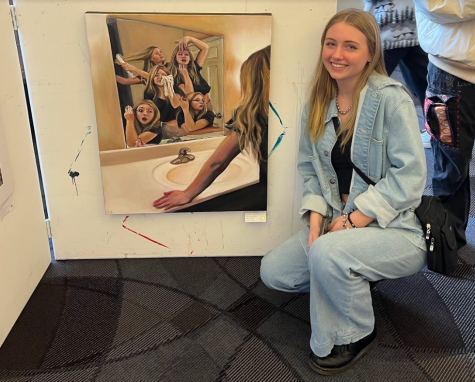
As a very creative and artistic person, people may view Lozina as matching the stereotype of artistically gifted people. But, she feels it’s practically the opposite of her personality. “ I would say that I definitely don’t feel like I fit the artistic person stereotype. In all of my art classes, there’s the label that you’re gonna be really eccentric. Especially with political values, I feel out there being in an art class and being different than everyone else in that room. When thinking of the stereotype, some may think we’re all into the same types of art since a lot of artists are more into digital art, which I’m not. They think that art kids are often very quiet and secluded, but I’ve never really felt that way. Though, I’ve also met many people who have been doing art for a while and are a lot like me. I think the main thing with stereotypes is that there are always different people in each group that stand out in different ways.”
When it comes to art, she’s open to anything. “I like to do a lot of different types, but I mostly do traditional, not digital. I do oil painting, acrylics, wash, colored pencils, charcoal, pretty much everything. I’ve been doing it my whole life, and I can’t remember a time when I wasn’t doing it every single day. I’m the type to doodle on every single paper. It’s always been a huge part of my personality.”
Besides art, she also branches out to other activities after school. “I do a lot of other things, like Life Teen. I play lacrosse, and I used to play field hockey; I’ve always been an athletic person, too. I do Science Olympiad, wch a lot of people don’t expect from both of the groups of being an art person and an athlete. I like writing too, so I feel like I have a lot of different stereotypes or groups that I could fall into, but I definitely don’t stick to one.”
If you attended the different Homecoming events this school year, you’d recognize the name Angie Cash. As a senior, she won Homecoming Queen, which she describes as an exciting experience. “It was definitely surprising finding out that I had won. I would say that I did not expect it, but I was happy and just surprised. I was a little overwhelmed on the day that it all happened, with finding out the day of the Homecoming game. And being in band, I had to miss the band portion of the football game, which was weird, but I would say it was a fun experience in general.”
After the crowning, she describes how the title stuck with her longer than expected. “I remember I was trying to pick out my boyfriend’s boutonniere for Homecoming, and the lady in front of me turned around and was like, ‘Are you Homecoming Queen?’ I didn’t know who she was. Even after the Homecoming season, people will still say to my parents when they see them, ‘Oh, I saw your daughter!’ It was definitely more of a long-lasting deal than I thought it would be. It’s not like I’ve forgotten about it, but I’ve kind of moved past it. If I’m going to be recognized for it now after so much time has passed, it’s typically adults that mention it.”
While October is a busy season for Homecoming, Cash is involved with many different groups year-round. “As I’ve said before, I’m in band, which is a really big part of me, and it’s a time-consuming thing that I don’t think people realize takes so much time. Also, I am the president of the Fashion Club at the high school, which is a lot of fun. Last year we put on a Fashion Show, and we’re hoping to do it again this year. I’m in Key Club, Hudson Community First and Our Time to Shine, which has taken a break this year, but I’ve been a part of that for the past couple of years. Lastly, I work at Farinacci’s pizza with a lot of other people from school.”
Her thoughts on stereotypes are similar to those of others, with her thinking that they aren’t always accurate.“Stereotypes from film and media can be true in some cases, but I would say that in general, in shows, we always see the jocks and the cheerleaders run the school, and I don’t know if that’s necessarily true at Hudson. I feel like it’s a more dispersed thing, like different people are friends with different people outside of their friend group or bubble that they’re in.”
Regarding the stereotype of school dance queens, Cash once again shares that she was surprised “someone like her” had won. “In Hudson, or at least in the past years — I’m in band, which is not something that you’d think of when thinking of dance Queens, especially from movies. I’d like to think that I don’t fit that stereotype. I think it’s just because I’m involved in a lot of different things and stuff that reaches a lot of people, so I know a lot of people in different realms of the school. I would say it’s more about being known as someone sociable and involved in certain things than overall popularity. I sure hope I’m not like the stereotype or like some Mean Girls character.” Thankfully, she is nothing like that, but a very kind person.
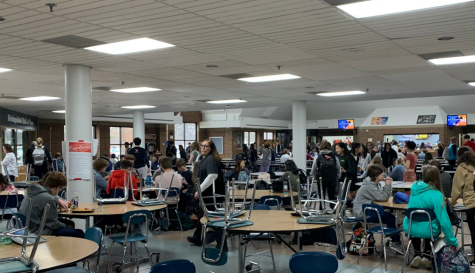
Cash then shares some insight into her life throughout high school. As a senior, she’s gained more wisdom than those just starting their four years. “I felt like when I was a freshman, I always used to feel like it was a huge deal for people to know who you are and for people to know me and think I was popular. But I feel like it’s more important to have actual, genuine connections instead of just worrying about if people know you. You should worry about the people who do know you and like you and think that you’re a good person. I think that’s more important than having lots of people know you.”
Even though the four interviewed students come from different groups around the school, they all have similar stances on stereotypes and the overall state of the school. High school may seem divided, but this division seems unnecessary if most students would prefer school unity. At least at Hudson, it’s now confirmed that stereotypes aren’t as accurate as initially thought. When you view a student you think is different from you, maybe try to look past what they’re known for and consider what lies beyond the surface. Once we look past the differences, HHS can be more unified and apply the message from The Breakfast Club: if students are willing to meet other teenagers, they’d realize they are more alike than different.




![Sophomore Gabriela Skomra is not only in band, but is also involved in numerous other activities. She puts things into perspective when it comes to stereotypes. “While some stereotypes in many cases appear to be true from the surface level, I think that they often prevent us or cause us to stay away from certain people instead of meeting them and getting to know who they really are. While there are some patterns in that generalization, it doesn’t really describe everybody and who they truly are. They [stereotypes] are a bit too negative sometimes.”](https://hudexplorernews.org/wp-content/uploads/2023/03/Screen-Shot-2023-03-15-at-12.31.34-PM.png)










